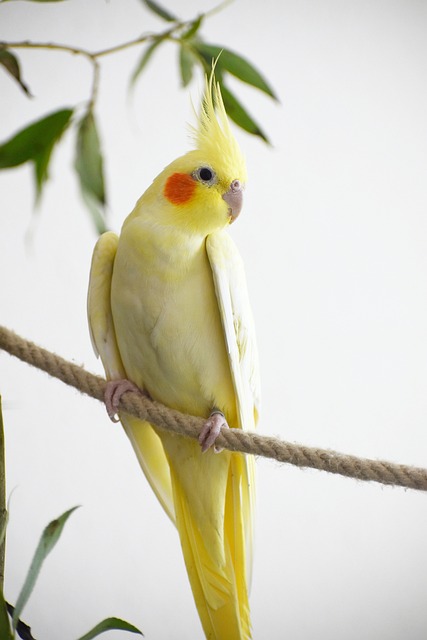The cockatiel is a hardy little parrot and the vast majority of illness this species faces is related to a poor diet, lack of exercise, or an unclean environment. This means that preventative measures are your best bet for keeping your bird in good health.
Feeding your bird a varied diet, promoting active play, and keeping the cage papers, perches, toys, and food bowls clean and free of decaying food and bacteria are how to keep those illnesses that are within your control at bay.
Cockatiels in captivity will reproduce year-round, and the species’ females might produce clutch after clutch. This is referred to as chronic egg laying, something that cockatiels are noted for. It creates a health hazard for the hen, whose own calcium supply becomes more depleted with each egg produced. This increases the possibility of egg binding, a condition in which the female is unable to pass the egg.

In order to prevent this from happening to your female cockatiel, it is necessary to make changes to the environment that deter the urge to breed. The hormonal surges that can result in aggressive behaviors and destruction in your home can be minimized by knowing which foods, interactions, and even toys to avoid at “that time of the year.”
Your cockatiel will need 10-12 hours of undisturbed sleep every night. Unfortunately, most cockatiels, at one point or another, experience episodes of terror in their cage referred to as “night frights”. This usually happens after the house is completely quiet in the middle of the night. A mouse or a family pet moving through the house, a draft blowing their cage cover, or the headlights from a passing car have all been identified as causes of these events.
In fear, your cockatiel will try to take flight in its cage and ultimately falls to the bottom. When this happens, turn on a light and go over to reassure your bird. More often than not, your cockatiel will recover quickly and go back to sleep, but there are many reports of injuries resulting from night frights every year. Keeping a night light illuminated in your bird’s room is effective as is the background noise of a fan or air purifier.
Many owners allow their birds a lot of out-of-cage time and your active and intelligent cockatiel will want to explore every corner of your home. As ground foragers, they will often inherently make their way to the floor – a place that can be dangerous for them. Aside from placing themselves amongst the foot traffic of large, sometimes unaware, humans, there is danger from other pets and things found on the floor, such as electrical cords. Always be alert when your cockatiel is out and about.
